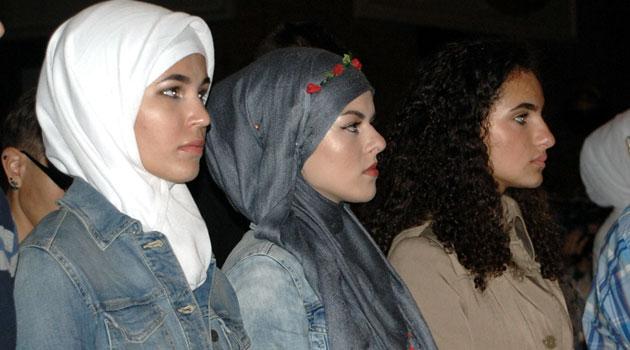Czech court rejects student's compensation claim after school allegedly banned her from wearing her hijab

On 27 January a Czech court rejected the claim of a Somali girl who sought an apology and CZK 60 000 (EUR 2 220) from the Secondary School for Nursing in Prague because the school allegedly banned her from wearing her hijab, the head scarf worn by some Muslim women. The plaintiff alleged that by banning the headgear, the institution indirectly discriminated against her access to education and her free choice of profession.
The judge, however, said the girl has failed to prove discrimination, primarily because she also failed to fulfill the requirements for registering with the school in the first place. The verdict has yet to take effect and may be appealed.
“The court arrived at the conclusion that the plaintiff never became a student of the school for reasons which were her responsibility, as she did not fulfill the legal condition for beginning her studies there according to the Education Act, i.e., submitting documentation of her residency by the first day of the school year,” Judge Daniela Čejková of the District Court for Prague 10 told a courtroom filled primarily with dozens of opponents of the religion of Islam, as well as students from the school being sued. It is the court’s opinion that the girl could have made her claim under the Anti-Discrimination Act only if she had fulfilled the requirements for study, which she did not.
Ayan Jamaal Ahmednuur alleges that she left the school after its principal, during the beginning of the school year in September 2013, called on her to remove her hijab. She also alleges that she had originally agreed with the school administration that she would only have to remove the head scarf during her practicum when coming into contact with patients.
The principal allegedly also did not allow for an alternative solution by which the girl would have kept just her neck covered, not her entire head, during instruction. “None of those allegations were proven. […] At the most, it is possible to arrive at the conclusion that the principal of the school, on 2 September 2013, in the presence of the plaintiff, could have been given pause by the hijab, or have expressed a certain dislike of it, and could also have pointed to the relevant regulations in the school rules pertaining to it,” the judge said.
The rules of the Secondary School for Nursing ban wearing any head covering. “It is the court’s opinion that it cannot under any circumstances be deduced from the fact that the principal referenced the regulations in the school rules that she therefore took a discriminatory approach toward the plaintiff,” Čejková noted.
Ahmednuur, according to the judge, expressed her intention never to begin her studies at the school when, after her chat with the principal, she left and then returned with a completed application to withdraw. In that notice of withdrawal, she wrote that the reason for her decision was the ban on wearing her hijab.
“[The plaintiff] did not give the defendant [the school] room for further discussion that could have led to an amicable solution, i.e., to the wearing of the hijab on school grounds. It was not the responsibility of the school to offer an amicable solution from its side to the plaintiff,” the judge concluded.
The school has previously called the ongoing scandal about the case absurd, and “hysteria” around the case was apparently not unleashed until a report on the issue was released by the Public Defender of Rights, Anna Šabatová, finding that the institution did indirectly discriminate against the girl. The court pointed out, when handing down its verdict, that it is not bound by the conclusions drawn by the Public Defender of Rights.
The nursing school is insisting that all schools have the right to establish rules regarding clothing and to restrict religious freedom, including for reasons of guaranteeing pupil safety and preserving the secular nature of education. The plaintiff’s lawyer has pointed out that a display of religious faith can only ever be restricted by law, not by a sub-statutory regulation such as a school code.
